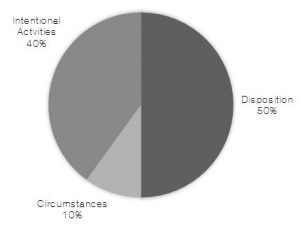Being happy in life is in our own hands
You’ve probably heard the saying;
“Happiness is a journey, not a destination”
and wiser words have not been spoken with regards to living a happier, less-stressful life. The goal is not to become happy, but rather to seek happiness as part of a way of life. And we all know that Happy Parents = Happy Workforce!
What is Happiness?
There are many theories on what happiness truly is, and how to achieve it, however the most prominent of these comes from the founder of the positive psychology movement himself, Dr. Martin Seligman. Seligman believes that the pursuit of true happiness in life must have a multifaceted approach.
We need to:
- – experience positive emotions
- – fully engage in the activities of life (work, play, relationships, parenting, etc.)
- – have positive, supportive relationships with others
- – seek meaning in life through broader perspectives on worries and issues, and
- – have goals and challenges in life to strive for and reach a sense of accomplishment
Now, don’t get me wrong. Negative emotions are beneficial to living a happy life too. Negativity is a very natural and important psychological resource. All emotions, both positive and negative, serve to motivate both your thoughts and actions; they are psychological measurements of your wellbeing and tell you when you are more or less happy.
There are moments where allowing yourself to acknowledge and experience negative emotions can help to achieve better results in your life, work and relationships. This is because negative emotions, in particular, prompt us to act upon our current circumstance and generate positive changes. People don’t change because they are feeling good. People change when they feel something is wrong; when something is making them unhappy and they can’t bear it any longer. Negative emotions motivate us to act towards change, and feeling constantly frustrated or unhappy are clear signs that you need to make changes in your life in order to take back control over your happiness.
How Much Control Do We Have Over Happiness?
Leading researchers in Positive Psychology have concluded that we all have a ‘set point’ (or where our mind and body like to be) for happiness, much in the same way we have a set point for our body weight. That is, regardless of what we do, and however much we fluctuate – our minds and bodies tend to find their way back to a certain level of happiness, or weight.
Half of our happiness set point is said to be determined by factors that relate to disposition; that is, our inherent nature to behave or feel in a particular way, which arguably cannot be permanently changed. This has usually been shaped by heredity, family of origin and life experiences.
Another 10% is determined by our circumstances (e.g., socioeconomic status), and the remaining 40% is determined by our intentional activity or the things we deliberately do to lift our mood and spirits, e.g., exercise, spending time with loved ones, listening to music.

Therefore, while there may not be much we can do about 60% that is out of our control, we can do something about the remaining 40%. That means that there is actually much about being happy that is within our control.
Losing Control
Unfortunately, many people lose their 40% of control over happiness in what’s called Deferred Happiness Syndrome. This is where a person endures an unsatisfying daily life and sacrifices happiness in the present, in the hope that this sacrifice will one day pay off in the future. i.e. “I’ll be happy when…”
Deferred Happiness Syndrome is the illusionary hope that things will get better, sort themselves out and then you can be happy. But, suddenly, years will pass and you have missed many opportunities to experience present moments of happiness.
4 Simple Ways to Create a Happiness Spiral
Here are 4 key, scientifically-proven strategies to help increase your overall happiness on a regular basis:
- 1. Actively practice and express gratitude
- 2. Use mindfulness practices to help put labels to your emotions
- 3. Make more not-quite-perfect decisions in your life to regain control and reduce stress
- 4. Physically connect with others (in-person visits or catch-ups, hugs, cuddles, kisses, massage, etc.)
The science of happiness is an ever-growing area of research that has had some significant findings and breakthroughs in the last decade, and there is some inspiring news that has come from this.
Firstly, you have a lot of control over how happy you are and want to be, despite the physical, emotional and social challenges that come with being a busy parent.
Secondly, to live a happy journey through parenthood requires relatively simple, low-effort changes to your lifestyle. The key is to identify the need for change, make it and stick with it until it becomes a habit, and part of the journey.
Now that’s something to be happy about!
If you need any help with creating a happier workforce, or would like to know more about our parent support programs, then please give us a call today on 0402 294 953. We’d love the opportunity to help!